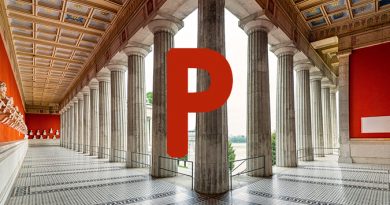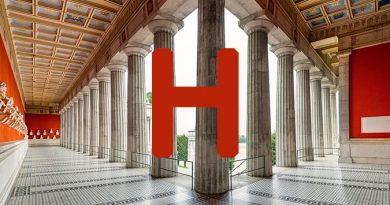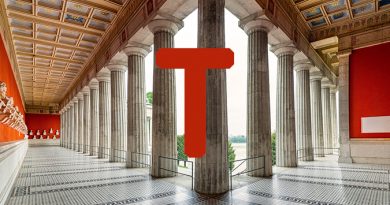J
Annie (Anna Bruce) Jamieson Education activist b. 1871, Leeds, Que.; d. Jan. 23, 1952, Vancouver. Graduate, U. of Manitoba in philosophy (1904). Taught in Manitoba before coming to Vancouver’s Dawson School (1907). From 1908-27, taught at King Edward HS (vice principal for ten years). Continuously elected to the Vancouver School Board (1929-46). Member, UBC senate; member, Board of Governors (1936-42). LL.D (UBC, 1942). Life member of the B.C. Library Association and 30-year library board member. Founding member, University Women’s Club. An elementary school is named for her. Born a Tory, she said she would “die a cynic where politics are concerned.”
Laura Emma Jamieson (née Marshall) Juvenile court judge b. Dec. 29, 1883, Park Head, Ont.; d. June 29, 1964, Vancouver. Graduate, U. of T (1908). In 1911, married lawyer J. Stewart Jamieson (d. 1926). Active member, University Women’s Club and suffragette groups. In 1921, organized a branch of the Women’s International League for Peace and Freedom. When her two children reached school age, she joined the B.C. Parent/Teacher Federation (president, 1925-26). On her husband’s death, she succeeded him as Burnaby Juvenile Court judge, the first B.C. woman in this position (1926-38). Joined CCF party (1939); elected MLA, Vancouver Centre. Re-elected (1941) but lost her seat in 1945. In 1947, elected the second woman alderman in Vancouver history.
Robert Jamieson Presbyterian missionary b. c. 1829, Ire.; d. Sept. 6, 1893, New Westminster. B.C.’s first Presbyterian minister arrived on Dec. 10, 1861, reaching New Westminster in 1862. Preached first sermon Sunday, March 16, 1862 in the pulpit of the Methodist church. Until March 1863, his flock met in the courthouse. Built St. Andrew’s Church on grant of land from Gov. Douglas (Carnarvon and Blackwood). Opened first school in the area, as well as Fraser Valley churches. In July 1870, on a borrowed horse, rode and preached 700 miles. After 1871, focused on St. Andrew’s. In 1884, illness forced his resignation. He later recovered and was named first prison chaplain.
Thomas John es Stage coach owner, driver b. April 16, 1855, Cornwall, Eng.; d. Oct. 14, 1926, Vancouver. Worked as a butcher in Seaforth, Ont., arriving in Granville (later Vancouver) on Oct. 31, 1883. Ran a butcher shop, then began operating es Stage, the first stagecoach line to carry passengers between New Westminster and Vancouver along Westminster Avenue (now Kingsway).
Harry Winston Jerome Sprinter b. Sept. 30, 1940, Prince Albert, Sask.; d. Dec. 7, 1982, North Vancouver. Began running at North Vancouver HS; member, Optimist Striders Track Club. Won a scholarship to U. of Oregon. Was the first to simultaneously hold world records for 100-metre and 10- yard events. Bronze medal, 1964 Olympics; gold medals at 1966 Commonwealth Games and 1967 Pan-American games. Competed in Olympics, Mexico City (1968), retiring the same year. Inducted into B.C. Sports Hall of Fame (1966), Canadian Amateur Athletic Hall of Fame (1967), Canada’s Sports Hall of Fame (1971). One of only a few blacks to receive Order of Canada (1970). Administered Premier Sports Award for athletic achievement in B.C. elementary schools. Died of stroke.
Pauline Jewett Political scientist, politician b. Dec. 11, 1922, St. Catharines, Ont.; d. July 5, 1992, Ottawa. Came west as president of SFU (1974-78). Elected Lib. MP (1963-65). Switched to NDP, and was elected for New Westminster-Coquitlam (1979-88). First female president of a major Canadian university (SFU). Appointed to Privy Council in 1992. Chancellor of Carleton U. Biblio: Faces of Canada by George Lonn.
Charles Gardiner Johnson Shipping pioneer b. Feb. 8, 1857, near Dunblane, Scotland; d. Jan. 19, 1926, Vancouver. In 1870, at 10, went to South Seas for a four-year apprenticeship. In the 1880s, left seafaring to farm in Souris River, Man.. On Sept. 5, 1885, broke and married, arrived in Vancouver; worked for CPR as a laborer. In 1886 opened a shipping and insurance agency, the first in the city. C. Gardner Johnson & Co. (Hastings and Granville) became one of the city’s major shipping agents. Addressed as major because he served with local militia. “Father of Vancouver’s shipping industry.”
Pauline Johnson (Tekahionwake) First Nations writer, stage performer b. March 10, 1861, Six Nations Reserve, Brantford, Ont.; d. March 7, 1913, Vancouver. Her father a Mohawk chief. Dressed as an Indian princess, she began performing her poetry in 1892, the start of an 18-year touring career. One of the most popular stage performers of her generation, many of her poems and stories were about Vancouver. Lost Lagoon, where she loved to canoe, was named from one of her poems. Retired to Vancouver (1909). A memorial to her was erected in 1922 near Third Beach. Biblio: White Wampum (1895); Canadian Born (1903); Flint and Feather (1912); Legends of Vancouver (1911).
Bob (Robert) Johnston Rower b. 1868, Elmsville, Charlottetown, NB; d. Aug. 9, 1951, Vancouver. Known as the “grand old man of rowing.” A boat builder, he moved to West Vancouver in 1888 and started rowing in 1889. Rowing was at its height of popularity and he competed before thousands. Best known for challenging world champion Jake Gaudaur of Hamilton, Ont., to a three-mile race in Coal Harbour (1898) but lost the $2,500 purse by two lengths. In Johnston’s final race, he won the $1,000 purse by beating former world champion John Hackett by 4.5 lengths. Coached the Vancouver Rowing Club which won a bronze medal in the 1932 Olympic double sculls event. Inducted into B.C. Sports Hall of Fame (1966). “A keen, cigar-chewing coach of champions.”
Charles Jones Mayor of Vancouver, 1948 See Mayors of Vancouver.




